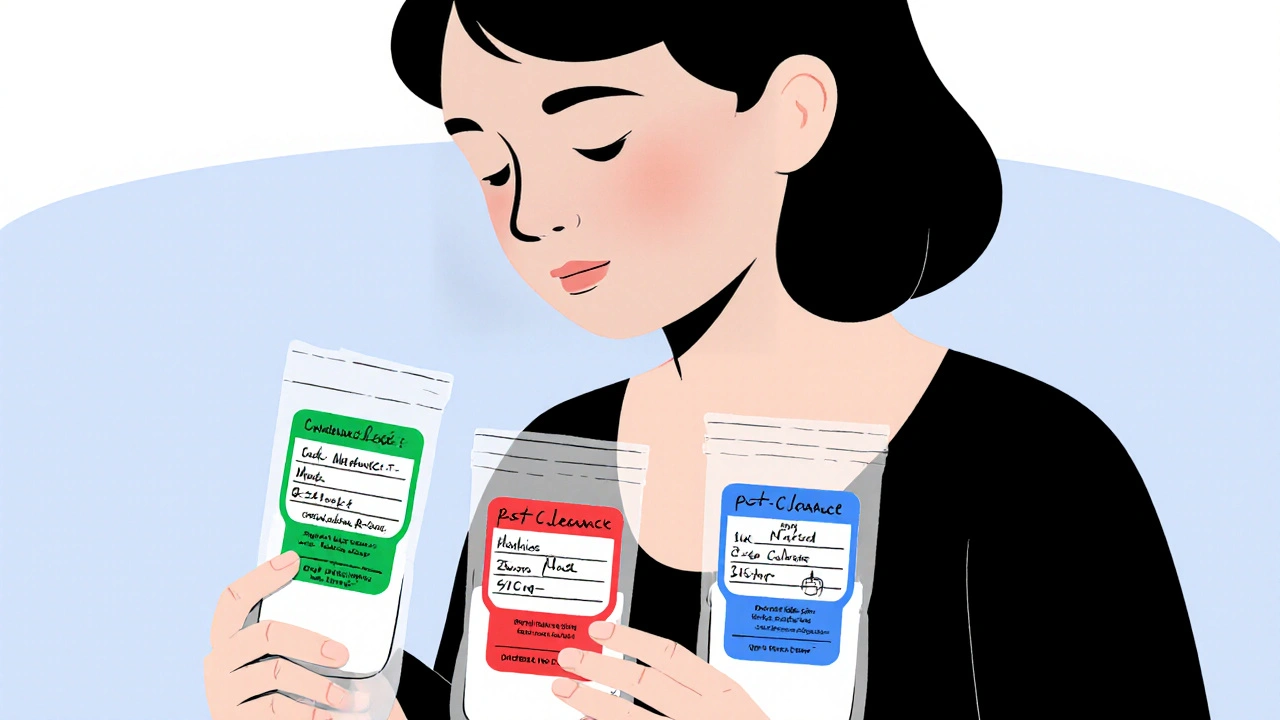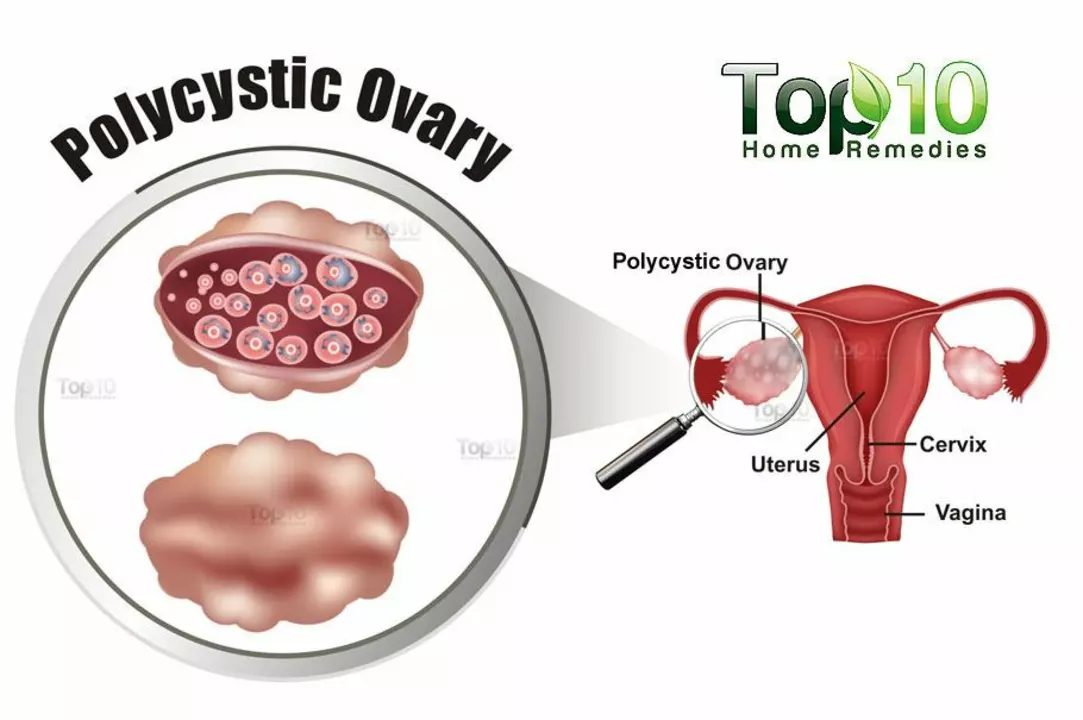Women's Health: Practical Tips, Hormone Help & Real‑World Resources
If you’ve ever felt confused by all the advice out there, you’re not alone. Women’s health covers everything from monthly cycles to long‑term hormone health, and the internet can be overwhelming. Below you’ll find straight‑forward answers that actually work for daily life.
Hormones That Matter
Progesterone is often called the unsung hero of female hormones. It steadies your cycle, supports a healthy pregnancy, and even eases menopause symptoms like hot flashes. When progesterone dips, you might notice irregular periods or mood swings. Simple steps—like adding magnesium‑rich foods or talking to a doctor about low‑dose supplements—can keep levels steady.
Polycystic Ovary Syndrome (PCOS) shows up in roughly one out of ten women of child‑bearing age. The condition messes with insulin and estrogen, leading to missed ovulation and tougher fertility chances. A balanced diet low in refined carbs, regular exercise, and sometimes metformin can improve hormone balance and boost the odds of getting pregnant.
Finding Support & Managing Fertility
Endometriosis is more than a painful period; it can affect work, relationships, and mental health. Joining an endometriosis support group gives you real tools—pain‑management tips, doctor recommendations, and the comfort of knowing someone else gets it. These groups often share resources that cut through medical jargon.
Premature ejaculation (PE) isn’t just a men’s issue—it impacts couples trying to conceive. While PE doesn’t directly cause infertility, it can lower sperm delivery to the cervix. Open communication and professional help—like behavioral therapy or prescribed medication—can improve timing, making natural conception easier.
When fertility feels like a maze, start with a clear checklist: track cycles, get blood work for hormone levels, and consider a referral to a reproductive endocrinologist if ovulation isn’t happening regularly. Small changes—like maintaining a healthy weight or reducing caffeine—often make a noticeable difference.
Beyond medical advice, everyday habits matter. Staying hydrated, getting 7‑9 hours of sleep, and managing stress with activities you enjoy (yoga, walking the dog, reading) keep your endocrine system on track. Remember, consistency beats quick fixes every time.
If you’re looking for reliable information, Alldayawake.com offers up‑to‑date guides on medications, disease overviews, and wellness supplements—all written in plain language. No need to wade through academic papers; just get the facts that matter for your health journey.
Bottom line: Women’s health isn’t a one‑size‑fits‑all topic. Focus on the hormones that directly affect you, seek community when dealing with chronic conditions, and keep simple lifestyle habits in place. With the right mix of knowledge and support, you’ll feel more in control of your body and future.

Contraceptive Patch, Ring, and IUD: Safety and Risks Compared
- Jan, 12 2026
- 12
Compare the safety and risks of contraceptive patch, vaginal ring, and IUDs. Learn which method has the lowest blood clot risk, best effectiveness, and most side effects. Find out what doctors really recommend.

Safe Migraine Treatments During Pregnancy and Lactation: What Works Without Risk
- Jan, 6 2026
- 12
Discover safe, evidence-based migraine treatments during pregnancy and breastfeeding. Learn which meds are okay, which to avoid, and how non-drug methods can reduce attacks without risk to your baby.

How to Store and Label Breast Milk When Taking Temporary Medications
- Nov, 18 2025
- 14
Learn how to safely store and label breast milk when taking temporary medications. Most meds are safe-no need to pump and dump. Just follow simple labeling rules to protect your baby and avoid wasting milk.

How Paget's Disease Affects Fertility and Pregnancy
- Nov, 18 2025
- 14
Paget's disease can affect fertility and pregnancy through bone changes in the pelvis and spine. Learn how it impacts conception, pregnancy risks, delivery options, and what steps to take before and during pregnancy.

Antibiotic-Induced Yeast Infections: How to Prevent and Treat Them
- Nov, 17 2025
- 9
Antibiotic-induced yeast infections are common but preventable. Learn how to stop them before they start with probiotics, antifungals, and lifestyle changes-and what to do if you already have symptoms.
Simethicone Use While Breastfeeding: Safety Guide & Precautions
- Oct, 18 2025
- 11
Learn if simethicone is safe while breastfeeding, how to use it correctly, and what precautions to take to protect both mom and baby.

Pregnancy and Postpartum Body Changes: What to Expect
- Oct, 15 2025
- 18
Learn what physical changes to expect during pregnancy and after birth, from hormone shifts and weight loss to pelvic floor recovery, with practical tips and warning signs.

Support Groups for Endometriosis: Real Help, Real Connection
- Apr, 26 2025
- 19
Support groups for women dealing with endometriosis offer more than just a place to vent—they bring real tools and hope. By sharing honest stories and tips, women often find ideas that actually make daily life easier. These groups can help with everything from pain management to finding the right doctor. Emotional relief and better information are just a session away. Why go through it all alone when there’s a community that truly gets it?

The Impact of Premature Ejaculation on Fertility and Conception: What Couples Need to Know
- Jul, 16 2023
- 11
Premature ejaculation (PE) can significantly affect a couple's ability to conceive. It's not just about the emotional toll it takes on both partners, but also the physical implications it has on fertilization. While PE doesn't directly cause infertility, it can make natural conception challenging due to insufficient sperm reaching the cervix. It's crucial for couples to understand this and seek appropriate medical help if they're struggling to conceive. Remember, open communication and a proactive approach can make a world of difference in your journey to parenthood.

The Relationship Between Fertility and Polycystic Ovary Syndrome (PCOS)
- Jun, 2 2023
- 16
As someone who has been researching PCOS, I've discovered that this hormonal disorder can have a significant impact on a woman's fertility. It's estimated that nearly one in ten women of childbearing age are affected by PCOS, making it a common cause of infertility. The hormonal imbalances associated with PCOS often lead to infrequent or absent ovulation, making it difficult for women to conceive. Furthermore, PCOS can also increase the risk of miscarriage and other pregnancy complications. It's crucial for women with PCOS to work closely with their healthcare providers to manage their symptoms and increase their chances of a successful pregnancy.
Categories
- Health and Medicine (62)
- Health and Wellness (57)
- Medicine (37)
- Women's Health (11)
- Mental Health (9)
- Men's Health (7)
- Beauty and Wellness (4)
- Health Information (4)
Archives
- February 2026 (8)
- January 2026 (25)
- December 2025 (28)
- November 2025 (25)
- October 2025 (27)
- September 2025 (14)
- August 2025 (3)
- July 2025 (2)
- June 2025 (2)
- May 2025 (3)
- April 2025 (4)
- March 2025 (4)
- online pharmacy
- medication safety
- dietary supplement
- health benefits
- dietary supplements
- generic drugs
- prevention
- fertility
- online pharmacy Australia
- side effects
- QT prolongation
- medication side effects
- diabetes medications
- GLP-1 agonists
- nocebo effect
- brand vs generic
- treatment
- treatment options
- benefits
- connection
